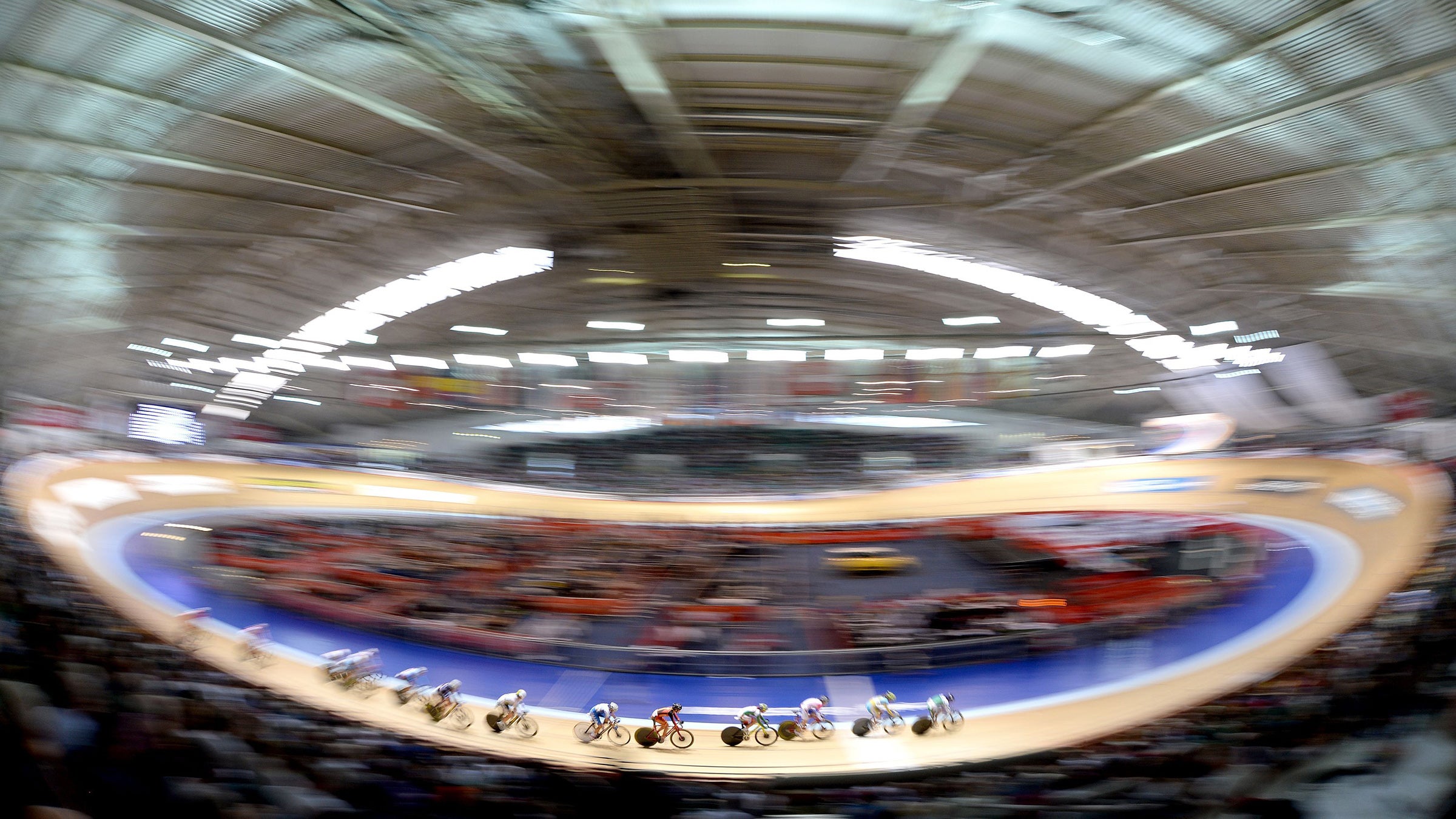UCI rules that Emily Bridges cannot compete in British national omnium championships

Manchester Velodrome in the United Kingdom (Photo: Tom Yates/PA Images via Getty Images)
Emily Bridges, a cyclist, and trans woman, will not compete in this weekend’s British national omnium championships after British Cycling’s initial decision to allow her to race was overturned by the UCI.
Bridges was permitted to race in the event under British Cycling’s transgender and non-binary participation policy, but the governing body said on Wednesday that they have been informed by the UCI that “under their current guidelines Emily is not eligible to participate in this event.”
Bridges, 21, began hormone therapy last year and meets British Cycling’s — and the UCI’s — stipulation that trans athletes must have a testosterone level of 5nmol/L for at least 12 months before their first race in the women’s category and therefore was permitted to compete at the weekend.
Having continued to race against men since coming out as transgender in 2020, the national omnium championships were set to be Bridges’ first time racing in the female category.
But according to The Guardian, the UCI overruled the decision on an administrative basis: Bridges is still officially registered as a male cyclist and thus must wait until her current British Cycling and UCI licenses expire before she can compete as a woman.
British Cycling said they acknowledge the UCI’s decision, but “fully recognize [Emily’s] disappointment with today’s decision”.
“We have been in close discussions with the UCI regarding Emily’s participation this weekend and have also engaged closely with Emily and her family regarding her transition and involvement in elite competitions,” the governing body said.
They went on to call for more clarity surrounding the participation of trans athletes in cycling, asking for a coalition to “share, learn and understand more about how we can achieve fairness in a way that maintains the dignity and respect of all athletes.”
“We know that some of these conversations are happening in pockets of the sporting world, but we want to encourage all sporting governing bodies, athletes, the transgender and non-binary athlete community, the Government and beyond to come together and find a better answer.
“Across sports, far more needs to be done, collectively, before any long-term conclusions can be drawn.”
Though the UCI rescinded Bridges’ eligibility to compete on the basis of her rider ID, president David Lappartient told the BBC he was concerned that the required testosterone level of 5nmol/L — which the UCI halved from 10nmol/L in March 2020 — was not low enough.
“I’m a little bit worried that this [transgender participation in sport] will affect the fairness of competition,” he said. “I believe that maybe the situation we have now, of the rules of five nanomoles per liter, is probably not enough.”
“When I speak with some professors in medicine, some specialists, they say, ‘yes, your body probably has a memory already of what you are and so there is maybe some advantages’”
Lappartient added that the UCI “fully recognizes the right of people to make that transition” but said he also understands concerns from other female athletes: “We were challenged from all parts.”